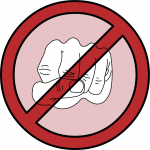
Shirley Reynolds considers the findings of a recent network meta-analysis, which investigates the comparative efficacy and acceptability of psychotherapies for depression in children and adolescents.
[read the full story...]
Shirley Reynolds considers the findings of a recent network meta-analysis, which investigates the comparative efficacy and acceptability of psychotherapies for depression in children and adolescents.
[read the full story...]
Patrick Kennedy-Williams highlights a recent opinion piece by Pim Cuijpers, which summarises what we know and what we don’t know about the efficacy of psychotherapies for adult depression.
[read the full story...]
Andrew Shepherd summarises a recent systematic review of the effectiveness of psychotherapy for depression in primary care, which contains a lot of data but leaves him feeling rather deflated.
[read the full story...]
This recent meta-analysis confirms that psychotherapy has a moderate to high effect on depression in older adults. However, a note of caution is sounded because of publication bias and the low quality of several of the included studies.
[read the full story...]
Psychological therapies such as cognitive behaviour therapy, interpersonal psychotherapy, behavioural activation, problem-solving and possibly psychodynamic therapy have been clearly shown to be effective in the treatment of adult depression. However it is not clear, how long such a therapy should last, how many sessions are optimal and what the best intensity of psychotherapy is. A [read the full story…]

Here at the Mental Elf we are always on the look out for research that extends trials into new areas, and offers practical benefits to people recovering from mental illness. Within psychiatric wards violence and challenging behaviour can be extremely distressing, with a 2007 Healthcare Commission report finding that over half of staff and almost half of [read the full story…]

Work-related stress is everywhere these days. Obviously us elves are pretty much immune, but looking at the Bristol Stress and Health at Work Study (Smith 2000) I can see that more than 50% of human respondents reported being extremely, very or moderately stressed at work. You lovely people do suffer from lots of emotional and [read the full story…]

Any parent whose child has a chronic or life-threatening illness will attest to the fact that it can be a worrying, stressful and exhausting journey. Parents can struggle to juggle caring for their child with work, social and other commitments. This can lead to parents suffering from mental health problems themselves, in addition to the [read the full story…]

Mental Elf readers have been voting for their favourite topics and top of the list at present are psychological therapies and depression. Us elves like to give people what they want, so here’s a review conducted by researchers in the Netherlands that summarises what we know about the effectiveness of different types of psychotherapy in [read the full story…]

Psychological therapies given to people with depression, anxiety or mixed disorders in primary care are usually delivered over a shorter time period than in secondary care. In the UK, 6 sessions is a common treatment length, which contrasts to the 12-24 sessions that have been the subject of most trials of psychological therapies in secondary care [read the full story…]